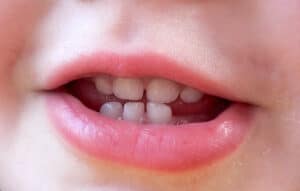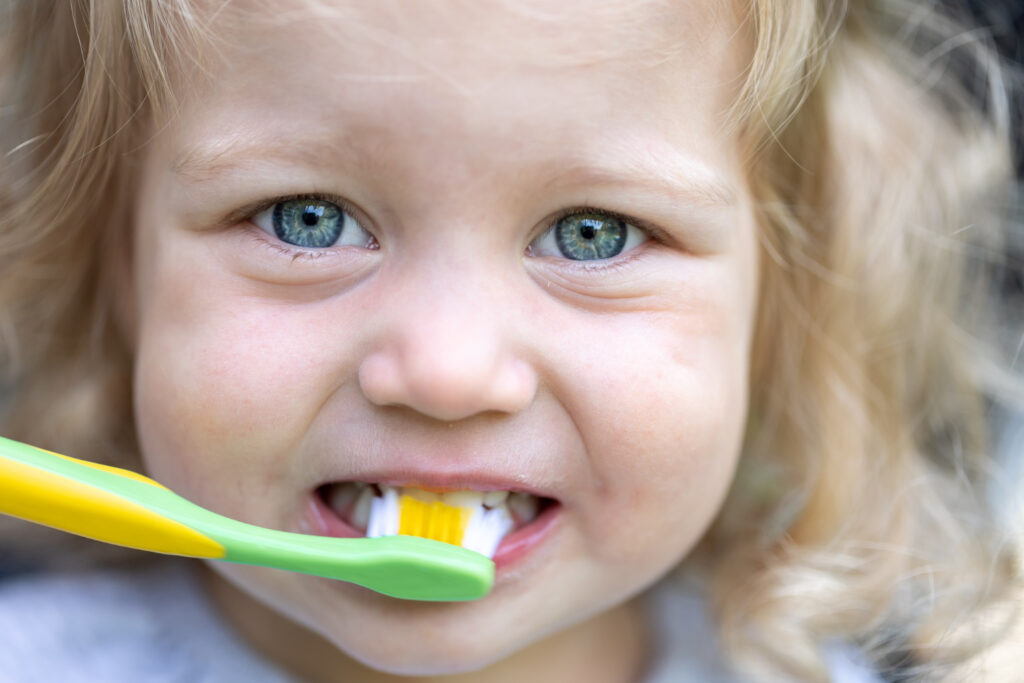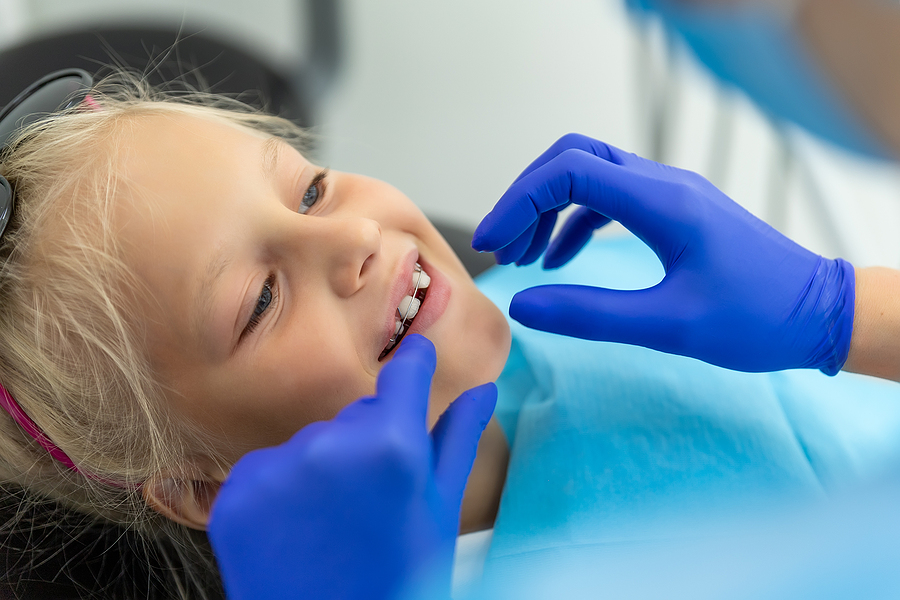Childhood development is a fascinating subject, requiring a balance between soothing behaviors and potential concerns from parents and caregivers. And there is one area that intrigued parents and experts alike: thumb-sucking and pacifier use in children. It’s crucial to understand when these habits transition from harmless self-comfort to something that requires our attention.
Understanding Thumb-Sucking and Pacifier Use in Children
While thumb-sucking and pacifier use may bring comfort to children, they can also have an impact on their dental health. As a child’s teeth are developing, prolonged and intense thumb-sucking or pacifier use can lead to dental issues, such as misalignment of teeth, an overbite, or problems with the roof of the mouth. This is where Preventative dentistry in Shoreline plays a crucial role in maintaining a child’s oral health.
In order to soothe their anxieties and find comfort, many children instinctively turn to their thumbs or pacifiers. These behaviors can be endearing and offer a temporary respite for both children and their parents. However, as caregivers, it is essential to navigate the fine line between supporting healthy self-soothing habits and identifying when these habits may become a cause for concern.
Benefits and Drawbacks of Thumb-Sucking and Pacifier Use in Children
Thumb-sucking and pacifier use in children offer certain benefits that can contribute to their overall well-being. These self-soothing behaviors provide comfort, security, and a sense of familiarity, helping children navigate challenging situations and cope with stress.
While thumb-sucking and pacifier use can be beneficial in moderation, prolonged or excessive reliance on these habits may present certain concerns. It’s important to be aware of the potential drawbacks associated with prolonged thumb sucking and pacifier use to ensure our children’s healthy development.
#1 – Impact on Dental Health
Extended thumb sucking or pacifier use can exert pressure on the teeth and jaws, which may lead to dental issues such as misalignment and an overbite. Monitoring the duration and intensity of these habits is crucial to minimize potential dental problems.
#2 – Speech Development Implications
Prolonged thumb sucking and pacifier use can affect speech development, particularly if they persist beyond certain age ranges. These habits can influence tongue placement, articulation, and the development of oral muscles. Early intervention is important if speech concerns arise.
#3 – Social and Emotional Considerations
As children grow older, prolonged thumb sucking or pacifier use may have social and emotional implications. The continued reliance on these habits can lead to social stigma, affect self-esteem, and hinder social development. Considering the broader impact beyond physical health is crucial.
Identifying Normal vs Problematic Thumb-Sucking and Pacifier Use
Normal thumb-sucking and pacifier use in children are often observed during specific stages of development. Some signs of normal thumb sucking, and pacifier use include occasional use for self-soothing, typically during naptime, bedtime, or when feeling tired or anxious. It is considered normal when these habits are not interfering with daily activities, dental health, speech development, or social interactions.
Understanding age-related guidelines can help parents gauge when thumb-sucking or pacifier use may require closer attention. While there is natural variability among children, here are some general age-related guidelines:
- Thumb Sucking: Most children naturally outgrow thumb sucking between the ages of 2 and 4. If the habit persists beyond this age range, it may be a cause for concern.
- Pacifier Use: It is recommended to start weaning children off pacifiers between 6 months and 2 years of age. By the age of 3, most children should have discontinued pacifier use.
Indications that Thumb Sucking or Pacifier Use in Children May Be Becoming Problematic
While thumb-sucking and pacifier use can be considered normal in certain contexts, there are indications that these habits may be becoming problematic and require attention from parents or caregivers.
- Duration and Frequency: If thumb sucking or pacifier use persists throughout the day or beyond the age when it is developmentally expected to diminish, it may be a sign of potential concern. Excessive and continuous reliance on these habits can impact oral development and interfere with age-appropriate activities.
- Effects on Dental Health or Speech Development: Thumb-sucking and pacifier use can have adverse effects on dental health and speech development. If these habits result in dental misalignment, changes in the roof of the mouth, or speech difficulties, it is important to monitor and address the situation to prevent long-term complications.
- Age-Related Concerns: Age-related concerns can arise if thumb-sucking or pacifier use continues beyond the recommended age ranges for these behaviors. As children grow older, the persistence of these habits can hinder their social interactions, self-esteem, and emotional development. It is essential to be mindful of age-appropriate expectations and address any potential issues accordingly.
Addressing Dental Issues Related to Thumb-Sucking and Pacifier Use
Dental and orthodontic issues like teeth crowding or spacing, malocclusions, and cavities can arise as a result of prolonged thumb sucking or pacifier use. While it’s best to intervene early to prevent or minimize these problems, there are strategies parents can employ to address dental concerns associated with these habits:
- Early Intervention: The sooner parents take action, the greater the likelihood of guiding proper dental alignment and promoting optimal oral development.
- Communication with a Dentist: A pediatric dentist can assess your child’s oral health, identify any specific dental or orthodontic concerns arising from thumb sucking or pacifier use, and provide appropriate interventions or treatments tailored to your child’s needs.
- Breaking the Habit: Help your child break the thumb-sucking or pacifier habit through positive reinforcement and gentle reminders. Gradually reducing reliance on thumb sucking or pacifier use can contribute to improved dental and orthodontic outcomes.
- Dental Appliances: In certain cases, a dentist may recommend dental appliances to address dental and orthodontic issues resulting from thumb sucking or pacifier use. These appliances, such as palate expanders or dental braces, can assist in guiding the proper alignment of teeth and promoting healthy jaw development.
Trust Floss & Gloss for Expert Shoreline Kids Dentistry Services
If you notice any teeth irregularities resulting from thumb sucking or pacifier use in your child, it’s important to take proactive steps to address their dental health. At Floss & Gloss, our practice specializes in Shoreline kids’ dentistry services, focusing exclusively on children’s dental care. Our team is dedicated to providing top-quality care and ensuring your child’s dental development is on the right track.
We understand the unique needs of young patients and offer comprehensive pediatric dental services from infancy through adolescence. Contact Floss & Gloss, the leading Shoreline kids’ dentistry practice, today to schedule a consultation and give your child the best possible dental care they deserve. Together, let’s ensure a healthy and confident smile for your little one!








